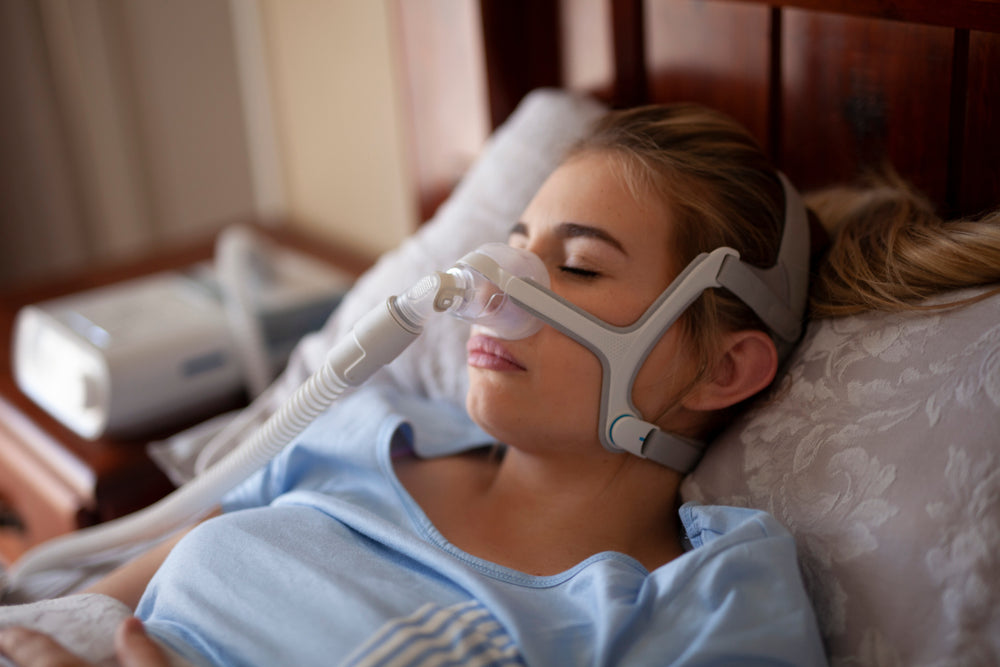Should You Acquire or Rent a CPAP Machine? Trick Factors to Think About
Navigating the decision between purchasing or renting a CPAP equipment can be an intricate venture. The monetary ramifications, insurance policy protection, upkeep duties, and specific clinical requirements all aspect into this vital selection.
Recognizing Rest Apnea and the Duty of CPAP Machines
Sleep apnea, a rest problem that influences millions internationally, is characterized by repeated stops in breathing during sleep. Get In the Continuous Positive Respiratory Tract Pressure (CPAP) device - an usual treatment for rest apnea. The CPAP machine works by delicately blowing pressurized air with the respiratory tract at a constant stress, successfully maintaining the throat open and allowing for unrestricted breathing.
Reviewing the Cost: Purchasing vs. Leasing a CPAP Equipment

How does one choose between acquiring or renting out a CPAP equipment? The solution largely depends on cost considerations. The cost of a brand-new CPAP maker can vary from $500 to $3000, relying on the version. Renting out, on the other hand, can cost in between $250 and $500 each year. Over time, the cost of renting might exceed the cost or equate to of purchasing a maker outright. Nonetheless, one must also think about the potential for device upgrades or replacements, which could tip the scales in favor of renting. Therefore, when evaluating the price, one requires to take into consideration both temporary and lasting monetary ramifications. In the end, the choice between buying or leasing a CPAP device should mirror private monetary capability and personal choices.
The Duty of Insurance Coverage Coverage in Your Choice

Insurance policy protection plays a significant duty in the decision to acquire or rent a CPAP machine. Insurance policy protection can dramatically minimize out-of-pocket costs, making CPAP therapy extra economical. It's important to consider the role of insurance policy protection when determining whether to purchase or lease a CPAP maker.
Maintenance and Maintenance: What to Expect With Possession vs. Rental
When considering the acquisition or leasing of a CPAP maker, comprehending the obligations associated with its upkeep Recommended Reading and maintenance is essential. Renters can anticipate to have their machines routinely serviced by professionals, which can dramatically minimize their individual obligation and provide tranquility their website of mind. Clearly, the choice to buy or rent out a CPAP device goes past initial expense considerations, expanding to the concern of maintenance.
Personalized Medical Requirements: Just How Your Condition Dictates Your Selection
For many individuals making use of a CPAP device, their particular medical problem mainly identifies whether buying or renting out is a much more viable alternative. Those with chronic rest apnea, needing long-term usage, may find buying to be affordable over time. On the other hand, people needing the equipment on a short-term basis, due to transient health and wellness problems, could find renting more financially possible and functional. Furthermore, the intensity and nature of the problem might require details machine functions. In such situations, getting a tailored device can be beneficial. However, frequent changes in the patient's condition, leading to adjustments in machine specifications, might prefer renting out. Inevitably, the selection in between purchasing or leasing a CPAP device ought to be guided by the person's one-of-a-kind clinical needs.
Conclusion

Examining the Expense: Buying vs (cpap machine for rent). Renting Out a CPAP Maker
Insurance coverage plays a considerable function in the choice to get or rent a CPAP equipment. It's vital to consider the role of insurance coverage when deciding whether to buy or lease a CPAP equipment.
Plainly, the choice to acquire or rent a CPAP maker goes beyond initial expense factors to consider, expanding to the concern of maintenance. (cpap machine for rent)
In final thought, view the choice to purchase or rent a CPAP device pivots on different aspects including expense, insurance coverage, upkeep duties, and personal clinical demands.